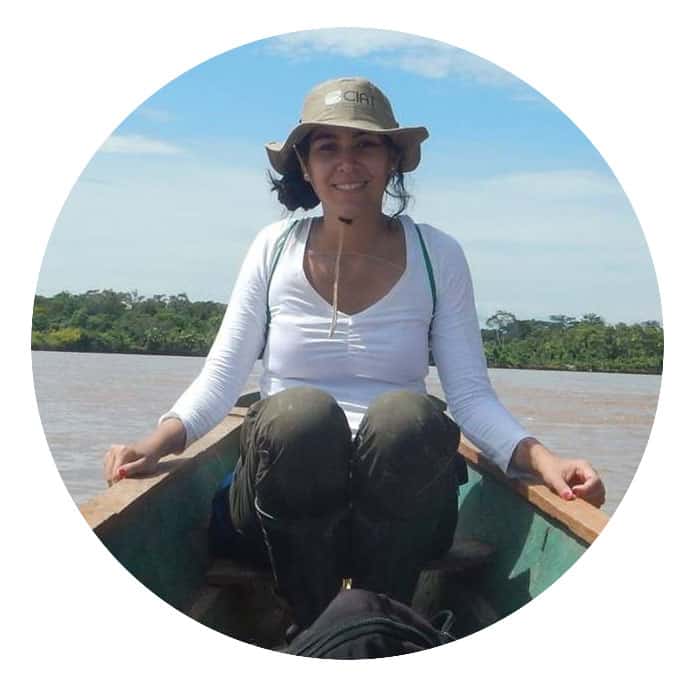Women in Data Science
Featuring Paula Andrea Paz, Data scientist and Research Assistant (Alliance of Bioversity and CIAT)

Paula Andrea Paz
Data scientist and Research Assistant (CIAT)
Cali, Colombia

I am a BsC in Topographic Engineering. Currently I work as research assistant at CIAT in Colombia, my main activities are related to the coordination of the project Terra-i in Latin America. I am primarily involved in the analysis and processing of satellite images, using different algorithms to support the monitoring of deforestation in tropical forest. In addition I also participate in field work activities of Terra-i that involve communication with local communities, spatial analysis, drone pilot and data collection to identify local drivers of deforestation.
What led you to pursue a career in data science?
Since I was very young, I have been concerned about environmental issues and had a special interest in earth sciences. During my topographic engineer studies, I learned different computational tools to process related data for remote sensing and geographic information systems.
In 2013 I got my first internship at CIAT in a Terra-i project monitoring vegetation changes in Latin America. I felt lucky because since that first experience I’ve had the chance to participate in a variety of activities. To accomplish my objectives is was crucial the development of my computational sciences abilities and know-how for image processing data.
What do you love about your role in data science?
Primarily, I love the potential impact that big data information can have. In addition, I love spatial data and the huge amount of information that is possible to manage when you are working with database analysis or with image collection. I guess the combination of computational power with the capacity to make informed assessment for environmental assessment is very exciting.
What has been the most exciting project you have worked on, or the one you are the most proud of?
The most exciting project I have been proud to work on is Terra-I Peru. It was an international project with a direct impact for the Peruvian government. This project allowed me to know a different culture and for the first time visit the field to validate the Terra-i data in the majesty of the Peruvian Amazon forest. This project was exciting because it took all the best from me in computational skills, field work skills and social skills to achieved our best results.
Do you feel this is an exciting time to be a woman working in the data sector?
Yes. It is really amazing working in this field. It doesn’t matter if you are a woman or a man. We are just at the beginning of what computational sciences could achieve.
As a science professional, the importance of the role and impact of the women in the data sector, has been proved time and again. I guess woman have a different approach to problems and, for computational thematic and programing, this is a good thing.
Why do you think there is a lack of women in tech and data sectors?
I’m not sure why this is, but I am sure that the participation of women will continue to increase in the long term.
As a women, did you face any challenges in your career pathway to work in data science?
It’s possible. But I consider it as a personal challenge and as a professional, that it is important to constantly keep upskilling and learning new topics in data science.
Why should more women get into data science?
We need more women in data science because it’s a sector filled with big challenges that make you happy to accept. It’s easy to be passionate about the themes and amazing applications and projects that you can be involved in. You always feel excited and motivated to research and expand your learning. It’s a great intellectual challenge that can lead to gender equality, for yourself personally, and also for the women that your project is focused on.
How could more women working in data, specifically for the development and agriculture sector, benefit the sector?
I think that gender euality in the workplace provides great benefits for every sector.
What advice would you give to women wanting to get into data science?
In data science there are always great opportunity to learn and know new things, and find exciting intellectual challenges. Even though it can be hard at times, you should always believe that you are capable of succeeding.



